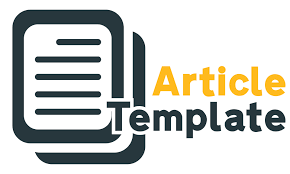The role of taxpayers’ education in mediating the relationship between tax sanctions and taxpayers’ motivations to use e-filling
DOI:
https://doi.org/10.38043/revenue.v1i1.2669Keywords:
educational status, tax sanctions, e-fillingAbstract
This study aimed to test empirically the effect of taxpayers’ educational status on the correlation between the taxpayers’ perceptions about tax sanctions and taxpayers’ willingness in reporting tax using e-Filling. This study used taxpayers’ educational status as a moderated variable, taxpayers’ perceptions about tax sanctions as an independent variable, and taxpayers’ willingness in reporting tax using e-Filling as a dependent variable. This study used primary data that are collected by using a questionnaire with incidental random sampling as the sampling technique. The sample of the research is the taxpayers domiciled in South and East Denpasar. Since South and East of Denpasar are the service area of KPP Pratama East Denpasar. The sample of this research was100 people. The data analysis of this research used Statistical Analysis Method using Moderated Regression Analysis. The results of the research show that the taxpayers’ perception of tax sanctions has a significantly positive effect on the taxpayers’ willingness in reporting tax using e-Filing and the level of taxpayers’ educational status has a significantly negative effect on the relationship between taxpayers’ perceptions about tax sanctions and taxpayers’ willingness in reporting tax using e-Filling.
References
Articles
Asante, S., & Adiburaseidu, B. (2011). tax compliance among self-employed in Ghana: Do demographic characteristics matter?. International Business and Management, 3(1), 86– 91. Https://Www.Researchgate.Net/Publication/267833565_Tax_Compliance_Among_Self-Employed_In_Ghana_Do_Demographic_Characteristics_Matter
Fajriana, I. (2015). The effect of taxpayer's level of education, services, and taxpayer on taxpayer's awareness in paying taxes (Case study of taxpayers listed at kpp pratama palembang ilir barat). Taxing Journal. 1–15. Https://Core.Ac.Uk/Display/35319408
Liana, L. (2009). Use of MRA with SPSS to test the effect of moderating variables on the relationship between independent variables and dependent variables. Journal of Information Technology DYNAMIC, 14(2), 90-97.
Mardiasmo. (2009). Taxation. Andi.
Nurkhin, A., Novanty, I., Muhsin, M., Sumiadji, S. (2018). The influence of tax understanding, tax awareness and tax amnesty toward taxpayer compliance. Journal of Finance and Banking, 22(2), 240-255. Http://Jurnal.Unmer.Ac.Id/Index.Php/Jkdp
Rustandi & Kurnia, I. (2020). How taxpayer awareness, taxpayer knowledge, tax sanctions, tax service quality affect on motor vehicles taxpayer compliance in Bandung city. Jimea | Jurnal Ilmiah Mea (Manajemen, Ekonomi, Dan Akuntansi, 4(2), 555-571.
Sari, N. P., Kertahadi, & Maria G. W. E. N. P. (2014). The influence of E-SPT implementation on corporate taxpayer compliance in reporting SPT (Case study at KPP Madya Malang). Tax Journal, 2(1), 1–10.
Sastra, K., Guna W., Siti K., & Icha F. (2015). The influence of education level, fiscus service, and taxpayer occupation on awareness of individual taxpayers in paying taxes (Case study of taxpayers registered at KPP Pratama Palembang Ilir Barat). Journal of Taxation, 10, 1–15.
Suherman, M., Almunawwaroh, M., & Marliana, R. (2015). Implementation of e-filling system in primary tax services. Accounting, Auditing, and Information Research Media, 15(1), 49-64.
Susmita, P. R, & Upadmi, N. L. S. (2016). the influence of service quality, e-filing sanctions on taxpayer compliance. E-journal of Accounting, 69, 12-39.
Susmita, P. R., & Supadmi, N. L. (2016). The Effect of service quality, e-filing sanctions on taxpayer compliance. Udayana University E-Journal of Accounting, 14(2), 1239–1269.
Widyanti, R. & Gusmidawati. (2017). The effect of education level and fiscus services on taxpayer's awareness (Case study of taxpayers in Koto Tengah district). Tower Economics Journal, 3(6), 141–51. Http://Doi.Org/10.31869/Me.V3i6.416
Yefni, Murniati, S., Zifi, M. P., Yuliantoro, H. R. (2018). What is the motivation of taxpayers in using e-filing information system?. Jurnal Akuntansi Multiparadigma Jamal, 9(3), 510-525. Http://Dx.Doi.Org/10.18202/Jamal.2018.04.9030
Young, T. J. (2015). Questionnaire and surveys. Research Methods in Intercultural Communication: A Practical Guide, 163-180.
Zuhdi, Firdaus A., Topowijono, & Azizah, D. F. (2015). Effect of E-SPT application and tax knowledge on taxpayer compliance. Business Administration, 64(6), 897–905.
Books
Ajzen, I. (2005). Attitudes, personality, and behavior (2nd Ed.). Open University Pers.
Arikunto, S. (2013). Research procedure: A practical approach. Rineka Cipta.
Basuki, A. T. (2010). Uji multikolinearitas dan perbaikan multikolinearitas 6.1.
Glasow, P. A. (2005). Fundamentals of survey research methodology. Washington C3 Center McLean.
Gujarati, D. (2003). Basic econometrics. Erlangga.
Language Center of The Ministry of National Education. (2002). Indonesia dictionary. Balai Pustaka
Siahaan, M. P. (2010). National tax law. Graha Ilmu Sugeng.
Sugiyono, (2013). Educational research methods (quantitative, qualitative and R & D approaches). Alfabeta.
Sugiyono, (2017). Educational research methods (quantitative, qualitative and R & D approaches). Alfabeta.
Suherman, M., Almunawwaroh, M., & Marliana, R. (2015). Effect of implementation of e-filing on taxpayer compliance in the submitting of annual returns (SPT) at the KPP, Tasikmalaya city.
Tjahjono, A. & Husein, M. F. (2005). Taxing (3th Ed.). Penerbit Upp Amp Ykpn
Undang-Undang Republik Indonesia Nomor 20 Tahun 2003 Tentang Sistem Pendidikan Nasional.
Undang-Undang Republik Indonesia Nomor 20 Tahun 2003 Tentang Sistem Pendidikan Nasional.
Wirawan B. I., & Burton, R. (2007). Tax law. Salemba Empat.
Thesis
Jatmiko, A. N. (2006). The effect of taxpayer attitude on the implementation of fine sanctions, fiscal services and tax awareness on taxpayer compliance (Empirical study of individual taxpayers in Semarang city) (Master’s Thesis). Postgraduate Program Diponegoro University.
Downloads
Published
How to Cite
Issue
Section
License
Copyright (c) 2020 REVIEW OF MANAGEMENT, ACCOUNTING, AND BUSINESS STUDIES

This work is licensed under a Creative Commons Attribution-ShareAlike 4.0 International License.











